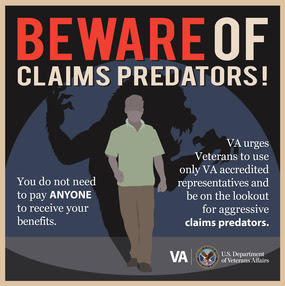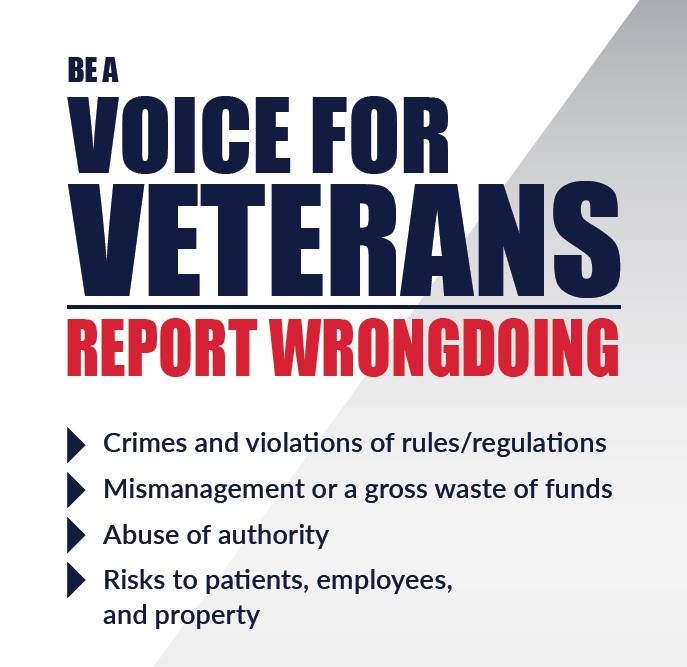- Home
- Veterans Law Info
- Case Law
- Francway v. Wilkie
Francway v. Wilkie (2019)
Francway v. Wilkie is a 2019 en banc decision by the Federal Circuit that clarified VA's obligations to prove that a C&P examiner is competent.
PTSDexams.net is an educational site with no advertising and no affiliate links. Dr. Worthen conducts Independent Psychological Exams (IPE) with veterans, but that information is on his professional practice website.
Table of Contents
Key Points for Psych C&P Examiners
Why is Francway v. Wilkie Important?
En Banc, Sua Sponte, & "Footnote 1"
Francway v. Wilkie: Brief Summary
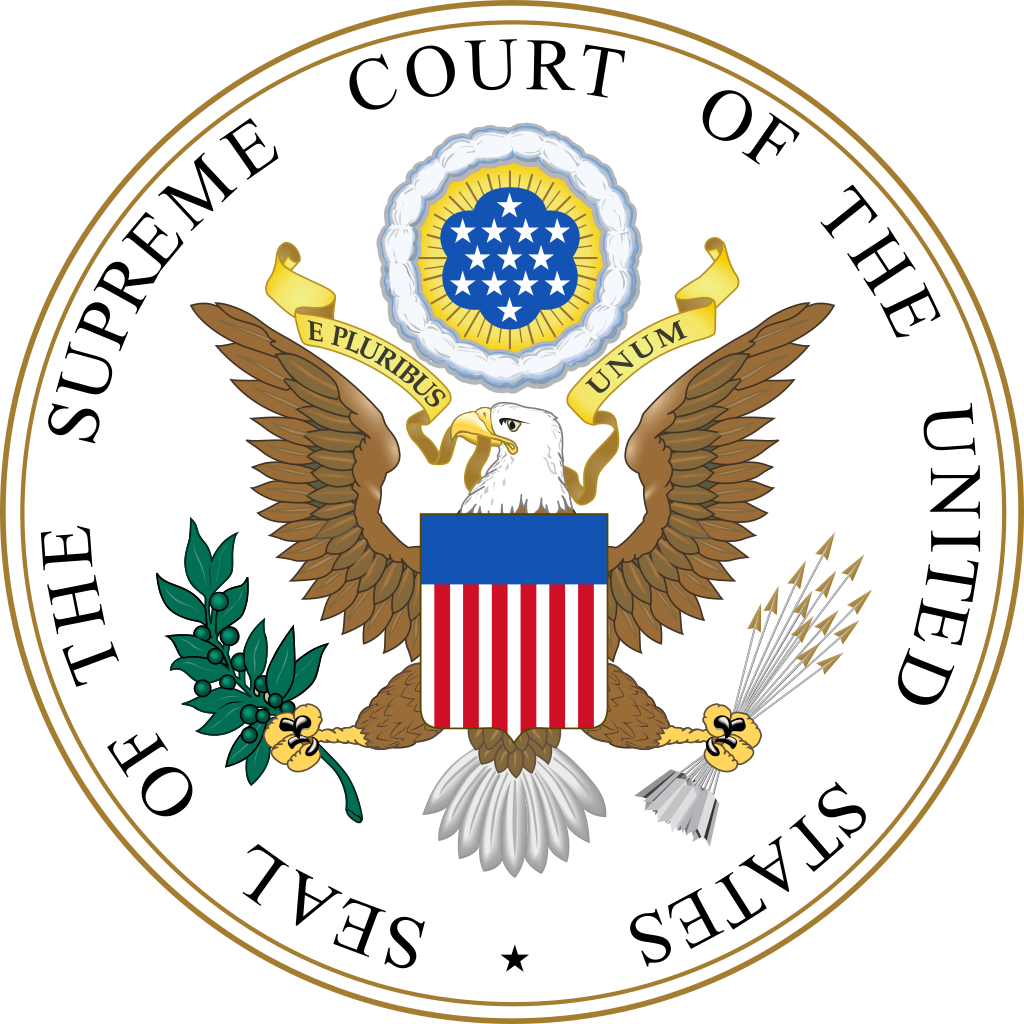
In a series of cases beginning in 2009, the Court of Appeals for the Federal Circuit created a presumption of competency wherein the Board of Veterans Appeals presumes that VA medical examiners are competent unless the veteran challenges the examiner's competency on appeal to the Board of Veterans Appeals.
The Federal Circuit's decision in Francway v. Wilkie, 940 F.3d 1304 (Fed. Cir. 2019) (en banc) clarified the Department of Veterans Affairs (VA) obligations to demonstrate a medical examiner's competence, if a veteran raises the competency issue before the Board of Veterans Appeals. (The Federal Circuit issued two opinions in this case, both in 2019. I am therefore referring to the second en banc decision as Francway v. Wilkie II.)
The plaintiff (Mr. Francway) appealed his case to the Supreme Court (he filed a petition for a writ of certiorari on 7 Nov 2019), essentially asking the Supreme Court to eliminate the presumption of competence. The Supreme Court denied certiorari on 23 Mar 2020. Thus, the Federal Circuit's decision in Francway v. Wilkie II stands.1
The Supreme Court's denial of certiorari does not mean the issue is over. Undoubtedly, the Supreme Court will be asked to address the presumption question again, probably within the next year or so.
Plus, the Federal Circuit's decision in Francway v. Wilkie II still has important implications, even if it did not eliminate the presumption of competency.
Francway v. Wilkie I: Francway v. Wilkie, 930 F.3d 1377 (Fed. Cir. 2019) [23 Jul 2019].
Francway v. Wilkie II: Francway v. Wilkie, 940 F.3d 1304 (Fed. Cir. 2019) (en banc) [15 Oct 2019].
Citation
Francway v. Wilkie, 940 F.3d 1304 (Fed. Cir. 2019) (en banc).
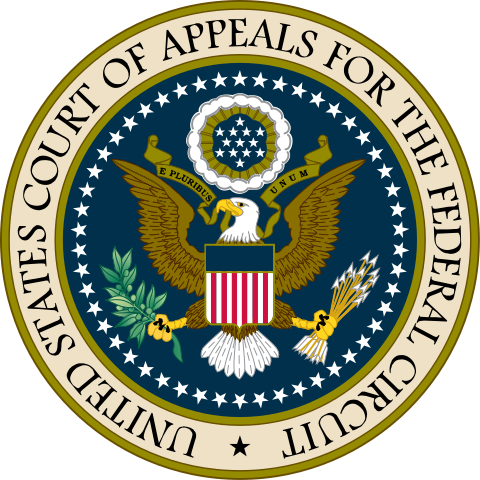 United States Court of Appeals for the Federal Circuit - Official Seal
United States Court of Appeals for the Federal Circuit - Official SealKey Points for Psych C&P Examiners
- Veterans who appeal a VBA claim decision to the Board of Veterans Appeals will increasingly raise the question of examiner competence and request information about the examiner, e.g., the examiner's curriculum vitae (CV) or résumé.
- Examiners should assume that appellant-veterans will request information about the examiner's education, training, and experience. At a minimum, an appellant-veteran or their attorney will request the examiner's CV.
- Examiners might consider posting their CV online and include a URL for their CV in their C&P exam report. I started doing that in 2013 after reading law professor James Ridgway's excellent article2 on writing disability exam opinions in which he noted:
... the CAVC has held that credentials are a factor that lay adjudicators can consider in weighing conflicting medical opinions, and there is no reason that physicians could not include a summary of their credentials in an opinion to help provide greater clarity in how the opinion should be weighed against conflicting medical or lay opinions. (footnote omitted)
I make this recommendation (to post your CV online and include a link to it in your reports) to save time for all concerned.
However, you should probably check with your "chain-of-command" (VA employees) or corporate office (contracted examiners) and seek approval first.
Naturally, I encourage VA and the MDE (medical disability examination) contract companies to approve such a practice since it will save time for everyone, particularly for the veteran and his or her family.
After all, if Nietzsche posts his CV, shouldn't we? ;0)
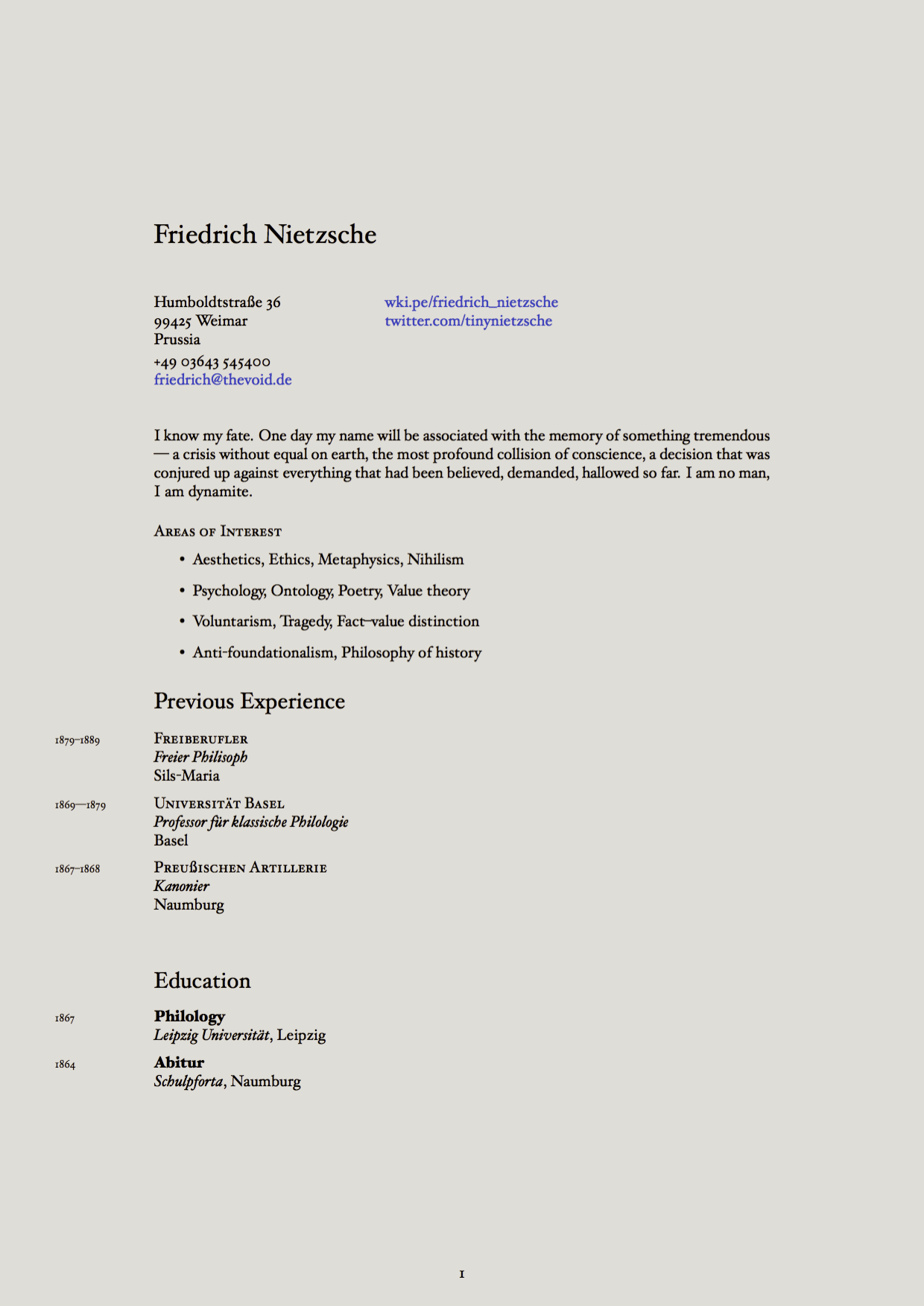 Imagined Curriculum Vitae (CV) for Friedrich Nietzsche by Mattia Tezzele (MrZool) creator of LaTeX Boilerplates, a plain-text document production system.
Imagined Curriculum Vitae (CV) for Friedrich Nietzsche by Mattia Tezzele (MrZool) creator of LaTeX Boilerplates, a plain-text document production system.Why is Francway v. Wilkie Important?
Although changing the content of "Footnote 1" in the Federal Circuit's opinion is important (see below), an equally important aspect of this decision—which was in the original three-judge panel decision—is that:
- when the veteran-appellant requests information about the examiner, the VA must respond promptly to this request;
- VA must produce the examiner's curriculum vitae "... and other information about qualifications of a medical examiner";
- this right is required by the VA's duty to assist—this duty comes from a statute passed by Congress and signed by the President,3 not merely a regulation written by the Department of Veterans Affairs.
- the "burden of persuasion" falls on VA to convince the Board of Veterans Appeals that the examiner was competent to provide the expert witness opinion(s) in the case; and
- the Board must explain in a clear and complete manner whether or not the examiner was competent to provide the opinion(s) and why the Board reached that conclusion.
Here is the relevant section of the Court's opinion:
... once the veteran raises a challenge to the competency of the medical examiner, the presumption has no further effect, and, just as in typical litigation, the side presenting the expert (here the VA) must satisfy its burden of persuasion as to the examiner’s qualifications.
The Board must then make factual findings regarding the qualifications and provide reasons and bases for concluding whether or not the medical examiner was competent to provide the opinion.
Since the veteran is obligated to raise the issue in the first instance, the veteran must have the ability to secure from the VA the information necessary to raise the competency challenge.
Once the request is made for information as to the competency of the examiner, the veteran has the right, absent unusual circumstances, to the curriculum vitae and other information about qualifications of a medical examiner. This is mandated by the VA’s duty to assist. See 38 U.S.C. § 5103A; ....
The VA agrees with this interpretation of the presumption of competency and the VA’s duties.4 [citations omitted; paragraph breaks and emphasis added to facilitate online reading]
Unanswered Questions
The Federal Circuit indicated that "... the veteran has the right ... to the curriculum vitae and other information about qualifications of a medical examiner."4
Unanswered questions:
* Are "qualifications" and "competency" synonymous?5
* What "other information" will veteran-appellants request about examiners;
* What "other information" about examiners will VA be willing to provide, and what information will they withhold?
Judge Hughes wrote in a concurring opinion, "... whether an examiner is competent and whether he has rendered an adequate exam are two separate inquiries.”6
* Since less-than-competent examiners are more likely to produce inadequate exam reports,α it is not clear if the Board of Veterans Appeals may consider an inadequate exam report as one indicator of examiner competence (or lack thereof), along with other factors.
En Banc, Sua Sponte, & "Footnote 1"
A three-judge panel of the Federal Circuit first decided this case on 23 Jul 2019.7
This case is interesting in part because the appellant (Mr. Francway) had requested an en banc ("before the entire court")8 hearing on 3 Oct 2019, however, the three-judge panel denied that request.
But the Court subsequently decided10 sua sponte ("on its own")11 to hold a rehearing en banc, and as a result the Court withdrew the prior (23 Jul 2019) decision and replaced it with the 15 Oct 2019 en banc decision. The only thing that changed was "Footnote 1", although it was an important change.
Here is "Footnote 1" from the en banc decision issued on 15 Oct 2019:
The en banc court formed of PROST, Chief Judge, NEWMAN, LOURIE, DYK, MOORE, O’MALLEY, REYNA, WALLACH, TARANTO, CHEN, HUGHES, and STOLL, Circuit Judges, has determined that to the extent that the decision here is inconsistent with Rizzo v. Shinseki, 580 F.3d 1288 (Fed. Cir. 2009), and Bastien v. Shinseki, 599 F.3d 1301 (Fed. Cir. 2010), those cases are overruled. We note that in the future, the requirement that the veteran raise the issue of the competency of the medical examiner is best referred to simply as a “requirement” and not a “presumption of competency.”12
Thus, it seems the other judges persuaded the panel that the Court should make it crystal clear that if the court's previous decisions (Rizzo and Bastien) differ from Francway, the opinion in the previous case is overruled.
Listen to the Oral Arguments
You can listen to the oral arguments (26 Jun 2019) before the Francway v. Wilkie three-judge panel at any of the following URLs. (These oral arguments preceded the 23 Jul 2019 panel decision.)
Simply copy-and-paste the URL into your browser window.
http://oralarguments.cafc.uscourts.gov/default.aspx?fl=2018-2136.mp3
(download mp3 file from court website)
https://archive.org/details/gov.uscourts.cafc.2018-2136
(multiple file types available)
https://www.courtlistener.com/audio/63937/francway-v-wilkie/
(listen online or download mp3 file)
For More Information
The excellent FedCircuitBlog provides an up-to-date procedural history table with links to all the petitions submitted to the Supreme Court, as well as links to FedCircuitBlog articles or posts about Francway v. Wilkie. Also see a similar table with article links on SCOTUSblog.
Endnote
α. The underlying logic for my claim that "less-than-competent examiners are more likely to produce inadequate exam reports" is straightforward, although I will briefly describe this syllogism in formal terms.
The statement a valid13 argument of the form modus tollens.14,15
If p then q.
Not-p.
Therefore, not-q.
If a VA mental health examiner consistently produces accurate results, the examiner is competent. [If p then q.]
The examiner consistently produces inaccurate results. [not-p.]
Therefore, the examiner is not competent. [Therefore, not-q.]
Footnotes
1. Francway v. Wilkie, 940 F.3d 1304 (Fed. Cir. 2019) (en banc). (I am referring to this decision as "Francway v. Wilkie II" to differentiate it from the earlier decision by the Federal Circuit: Francway v. Wilkie, 930 F.3d 1377 (Fed. Cir. 2019), which I am referring to as "Francway v. Wilkie I").
2. James D. Ridgway, "Mind Reading and the Art of Drafting Medical Opinions in Veterans Benefits Claims", Psychological Injury and Law 5, no. 1 (March 2012): 78.
3. Duty to assist claimants, U.S.C. § 5103A (2018).
4. Francway v Wilkie, No. 2018-2136, slip op. at 8 (Fed. Cir. October 15, 2019) (en banc).
5. By “synonymous” I specifically mean (from Webster’s): “1: … [1b] capable of being substituted for another word or expression in a statement without essentially changing the statement's meaning; 2: having the same connotations, implications, or reference: suggesting the same thing — usually used with with." Webster's Third New International Dictionary, Unabridged (1961, rev. 2016), http://unabridged.merriam-webster.com/unabridged/synonymous
6. Mathis v. McDonald, 834 F.3d 1347, 1351 (Fed. Cir. 2016) (Hughes, J., concurring in denial of reh'g en banc) (“... whether an examiner is competent and whether he has rendered an adequate exam are two separate inquiries.” ).
7. Francway v. Wilkie, 930 F.3d 1377 (Fed. Cir. 2019) withdrawn, replaced by Francway v. Wilkie, No. 2018-2136 (Fed. Cir. October 15, 2019) (en banc).
8. Oxғᴏʀᴅ Eɴɢʟɪsʜ Dɪᴄᴛɪᴏɴᴀʀʏ (3rd ed. 2017), https://oed.com/view/Entry/56701627 ("en banc, adv. and adj., Law (chiefly U.S.). A. adv. With all ... of the judges of a court present; before or by the full bench. A sitting en banc is typically held by an appeal court in order to review decisions made by a panel of its members. Some courts (e.g. the Supreme Court of the United States) traditionally hear all cases referred to them en banc.")
10. Francway v. Wilkie, sua sponte reh'g en banc No. 2018-2136, Order (Fed. Cir. October 15, 2019) (per curiam).
11. Wɪᴋᴛɪᴏɴᴀʀʏ, https://en.wiktionary.org/wiki/sua_sponte, "sua sponte - (law) Without prompting or suggestion; on its own initiative. Usage notes: Usually used when the court issues an order or otherwise acts without being petitioned to do so."
12. Francway v. Wilkie, No. 2018-2136, slip op. at 5 (Fed. Cir. October 15, 2019) (en banc).
13. See Wᴇʙsᴛᴇʀ's Tʜɪʀᴅ Nᴇᴡ Iɴᴛᴇʀɴᴀᴛɪᴏɴᴀʟ Dɪᴄᴛɪᴏɴᴀʀʏ, Uɴᴀʙʀɪᴅɢᴇᴅ (ed. Philip B. Gove 1961, rev. 2016), http://unabridged.merriam-webster.com/unabridged/valid ("valid, adjective ... 2 (a) : well-grounded or justifiable : applicable to the matter at hand : Pᴇʀᴛɪɴᴇɴᴛ, Sᴏᴜɴᴅ; … <a valid argument> … (b) of an inference : correctly derived from its premises; specifically : true in terms of the logical principles of the logistic system to which the inference belongs."); see also Cᴏʟʟɪɴs Eɴɢʟɪsʜ Dɪᴄᴛɪᴏɴᴀʀʏ (12th ed. 2014), Kindle loc. 470037 ("valid, adj. 1 having some foundation; based on truth ... 4 having some force or cogency: a valid point in a debate; 5 logic (of an inference or argument) having premises and conclusion so related that whenever the former are true the latter must also be true, esp (formally valid) when the inference is justified by the form of the premises and conclusion alone.").
14. Dᴏᴜɢʟᴀs Wᴀʟᴛᴏɴ, Fᴜɴᴅᴀᴍᴇɴᴛᴀʟs ᴏғ Cʀɪᴛɪᴄᴀʟ Aʀɢᴜᴍᴇɴᴛᴀᴛɪᴏɴ 62 (2006).
15. Mᴀʀᴋ B. Wᴏᴏᴅʜᴏᴜsᴇ, A Pʀᴇғᴀᴄᴇ ᴛᴏ Pʜɪʟᴏsᴏᴘʜʏ 72, 78 (9th ed. 2013).
Subscribe to receive new articles and other updates
What Do You Think?
I value your feedback!
If you would like to comment, ask questions, or offer suggestions about this page, please feel free to do so. Of course, keep it clean and courteous.
You can leave an anonymous comment if you wish—just type a pseudonym in the "Name" field.
If you want to receive an email when someone replies to your comment, click the Google Sign-in icon on the lower right of the comment box to use Google Sign-in. (Your email remains private.)
↓ Please comment below! ↓

